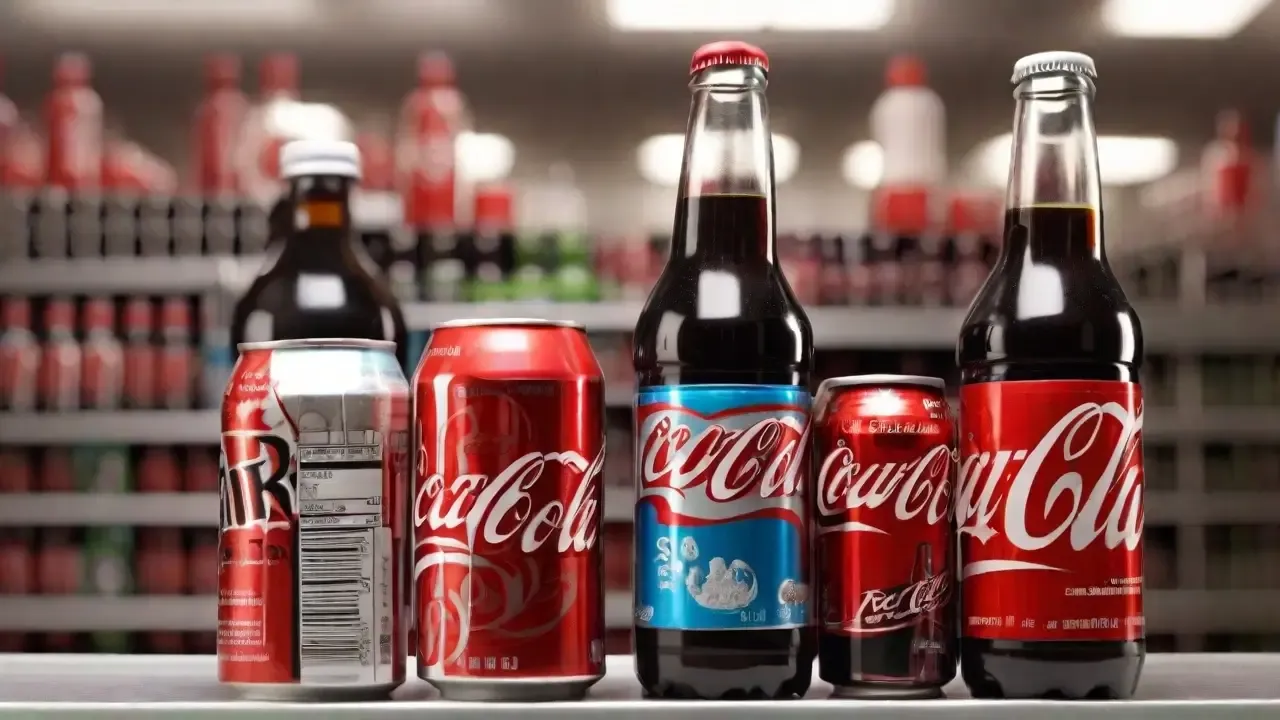Drinking Diet Sodas and Aspartame:
When it comes to beverages, diet sodas have become a popular choice for those looking to reduce their calorie intake while still enjoying a fizzy and refreshing drink. One of the key ingredients in these diet sodas is aspartame, a sugar substitute that has been the subject of various debates and discussions. In this article, we will delve deep into the world of drinking diet sodas and aspartame, providing you with valuable insights and addressing common questions surrounding these topics.
 |
| Drinking Diet Sodas and Aspartame |
Table of Contents
- Understanding Diet Sodas
- The Role of Aspartame
- Health Concerns and Controversies
- Making Informed Choices
- Frequently Asked Questions
- Conclusion
Understanding Diet Sodas
Diet sodas, also known as sugar-free or low-calorie sodas, are carbonated beverages that are sweetened with artificial sweeteners instead of sugar. These beverages are marketed as a healthier alternative to regular sodas because they contain fewer calories and are often free of sugar. People turn to diet sodas for various reasons, including weight management and blood sugar control.
However, it's essential to note that while diet sodas are calorie-free, they may not necessarily be the healthiest choice. Many diet sodas contain artificial sweeteners like aspartame, which can raise questions about their impact on our health.
The Role of Aspartame
Aspartame is one of the most commonly used artificial sweeteners in the world. It is found in a wide range of products, including diet sodas, sugar-free gum, and various low-calorie foods and beverages. Aspartame is highly sweet, making it an attractive option for manufacturers looking to reduce sugar content in their products without compromising on taste.
When you consume aspartame, your taste buds perceive it as sweet, much like they would perceive sugar. However, unlike sugar, aspartame is virtually calorie-free, which is why it's favored in diet products. It's important to mention that aspartame is approved for use by various food safety authorities, including the Food and Drug Administration (FDA) in the United States.
Health Concerns and Controversies
Despite its widespread use, aspartame has faced its share of controversies and health concerns. Some studies and anecdotal reports have suggested potential side effects associated with aspartame consumption. These concerns include:
- Headaches and migraines
- Gastrointestinal issues
- Weight gain
- Metabolic disturbances
- Increased appetite for sweet foods
It's worth noting that many of these claims lack conclusive scientific evidence. The FDA and other regulatory bodies have reviewed extensive research on aspartame and have determined it to be safe for most people when consumed within acceptable daily intake levels.
Making Informed Choices
When it comes to drinking diet sodas and consuming products containing aspartame, making informed choices is crucial. Here are some tips to consider:
- Limit your consumption: Moderation is key. While aspartame is considered safe, excessive consumption of diet sodas may not be beneficial for your overall health.
- Read labels: Check product labels for the presence of aspartame and other artificial sweeteners if you have specific dietary concerns or preferences.
- Monitor your body's response: If you experience adverse effects after consuming products with aspartame, consult a healthcare professional.
Frequently Asked Questions
1. Is aspartame safe for everyone?
Aspartame is generally considered safe for the majority of the population when consumed within acceptable daily intake limits. However, individuals with a rare genetic disorder called phenylketonuria (PKU) should avoid aspartame, as they cannot metabolize an amino acid found in aspartame properly.
2. Can drinking diet sodas help with weight loss?
Diet sodas can be a tool for reducing calorie intake, which may aid in weight loss for some individuals. However, the overall impact on weight loss depends on various factors, including diet and exercise habits.
3. Are there healthier alternatives to aspartame?
Yes, there are alternative sweeteners available, such as stevia and erythritol, which are considered natural sweeteners. These can be used as alternatives to aspartame in products that require sweetening.
4. What are some potential side effects of aspartame?
While some individuals may experience side effects like headaches or gastrointestinal discomfort, these reactions are relatively rare. Most people can consume aspartame without adverse effects.
Conclusion
In conclusion, drinking diet sodas that contain aspartame can be a part of a balanced diet for many individuals. Aspartame is a safe sugar substitute when consumed in moderation and within recommended limits. It allows people to enjoy the sweetness of their favorite beverages without the added calories of sugar.
However, it's essential to remain mindful of your overall diet and lifestyle choices. While aspartame is generally considered safe, everyone's body reacts differently, so it's important to listen to your body and make choices that align with your health goals.
If you have specific concerns about aspartame or its effects on your health, consulting with a healthcare professional can provide you with personalized guidance. Ultimately, the key to a healthy diet is balance and informed decision-making.


